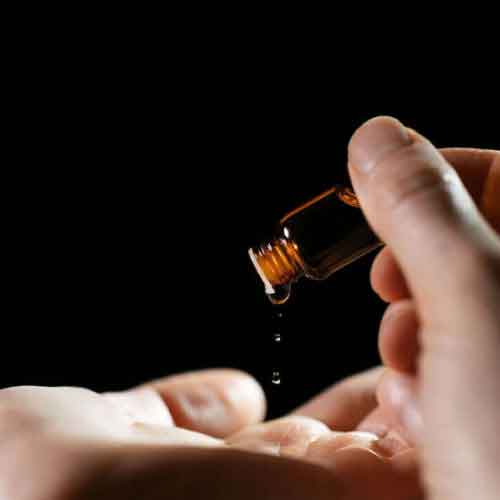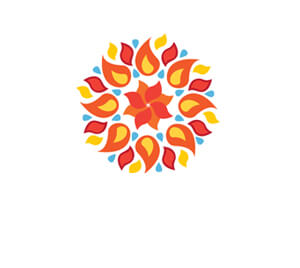Ayurveda Course in Rishikesh
Ayurveda Courses in Rishikesh, India are designed by Real Happiness Vedic School to acquire a deep knowledge of ancient Ayurvedic Medicine, Herbs, and Spices system.
Ayurveda Courses in Rishikesh, India are designed by Real Happiness Vedic School to acquire a deep knowledge of ancient Ayurvedic Medicine, Herbs, and Spices system.
Ayurveda Training in Rishikesh is best suited for beginners who are not from an Ayurvedic Study Background and for intermediate-level students. In this course, students will engage in practice, research, theory, and observation of Ayurveda.
This program involves classes that include a point to point understanding of Ayurvedic fundamental ideas including cleanliness, and positive wellbeing. During the program, you will encounter one-on-one collaboration and backing from our group of professional experts who take care of you consistently. They, and the office wherein they work and educate, are completely prepared to give information to you on all Ayurveda treatments and medicines. Ayurveda Courses in Rishikesh, India give a good introduction and overview of Ayurveda. It helps in understanding one’s own constitution and accordingly adjusting the diet and lifestyle. This knowledge can be used for the benefit of oneself and can also be shared with family, friends, and students. Readings incorporate notable Indian Philosophy messages, Anatomy in a piece of composing the possibility of Tridosha, Prakriti/Constitution, Zygomatic bone or side-effect, Ojas Digestion and Metabolism Ayurvedic Herbology.
We offer several Ayurveda programs in India, including our active Ayurvedic body treatment (panchakarma). These comprehensive private programs were created based on Western standards. From the moment you leave the airport, all your needs for living an Ayurvedic lifestyle are provided. This unique and immersive training opportunity enables you to uncover what the ancient wisdom of Ayurveda has to teach you. Upon completion of the course, you will be awarded a certificate as a reward for your hard work.

The fundamental advantages of studying Ayurveda are personal, familial, mutual, and professional. Regardless of where your goals lie, let us begin the journey by healing ourselves. Self-healing, known as swasthavritta, is the first step towards healing others. The work is personal, vulnerable, and powerful. With time and self-study, you will witness new and transformative changes within your nature. Hence, Ayurveda is a wonderful and deeply fulfilling practice.

Panchakarma is the most well-known detoxification process of Ayurveda, restoring youth with the help of medicated oils. This exceptional treatment of medicated oil massage and herbal remedies was prescribed in ancient Vedic scriptures and has been practiced in Kerala for centuries. Considering the level of transformative detoxification it provides, it is not difficult to understand why.

Ayurveda is a traditional Indian system of medicine. It aims to preserve health and well-being by keeping the mind, body, and soul in balance and preventing diseases rather than just treating them. To achieve this, it requires a holistic approach that includes dietary, exercise, and lifestyle changes. Ayurvedic herbs and spices are also a crucial component of this approach. They are believed to protect the body from illness and offer a variety of health benefits, including improved digestion and mental well-being.

Rasayana is an Ayurvedic restoration treatment that helps in the support and advancement of wellbeing. Rasayana implies nourishment at all levels from full scale to the miniature cell level. Rasayana treatment renews the indispensable liquids of the body; helps the Ojas (crucial power of life) and the invulnerable framework, consequently avoiding illnesses and forestalls against sick impacts of cutting-edge age. Rasayana treatment forestalls the impact of maturing and gives life span, improves mental ability, and has other advantages also.

Vata provides the fundamental motion for all bodily processes and is extremely crucial for health. On an annual basis, Vata is most prominent in the fall and during seasonal changes, and these are the key times to be cautious about diet and lifestyle. One purpose of lifestyle considerations is to stabilize this movement. Routine is helpful in assisting the Vata individual to effectively ground such a high amount of moving energy.

Pitta dosha controls your digestion, metabolism (how well you break down foods), and certain hormones associated with your appetite. Things that can disrupt it include consuming spicy or hot foods and spending too much time in the sun. If pitta dosha is your primary life force, you are more likely to develop conditions like Crohn's disease, heart disease, high blood pressure, and infections. There could be multiple symptoms of pitta, such as bad breath, body odor, anger, irritability, etc.

Kapha is composed of earth and water elements. It is heavy, slow, cool, smooth, soft, dense, stable, gross, and cloudy. Kapha provides structure and strength to all things; it offers the cohesiveness needed to maintain a particular form. Kapha also hydrates all cells and systems, lubricates the joints, moisturizes the skin, maintains immunity, and protects the tissues. Kapha is often associated with water energy, love, and compassion.
| Calendar | ||
|---|---|---|
| 01 - 10 March 2026 Book Now | 01 - 12 April 2026 11 Seats left | 01 - 12 May 2026 10 Seats left |
| 01 - 12 June 2026 11 Seats left | 01 - 12 July 2026 05 Seats left | 01 - 12 August 2026 08 Seats left |
| 01 - 12 September 2026 10 Seats left | 01 - 12 October 2026 12 Seats left | 01 - 12 November 2026 08 Seats left |
| 01 - 12 December 2026 10 Seats left | ||
The daily course schedule is well-structured for beginner students because it progresses from very easy to easy, from easy to medium, and from medium to hard. It includes 10 hours of daily practice, study, self-study, meals, music, walks, sightseeing, and much more.
4 Activities
|
Sq. |
Activity |
Timing |
|
1. |
Wake Up and Nitya Karma |
5:00 am - 5:30 am |
|
2. |
Vedic - Wellness Pooja |
5:30 am - 6:00 am |
|
Sq. |
Activity |
Timing |
|
3. |
Pranayama and Yoga |
6:00 am - 08:00 am |
|
4. |
|
6 Activities
|
Sq. |
Activity |
|
1. |
Sightseeing |
|
2. |
Silent Walk |
|
3. |
Spiritual Tour |
|
Sq. |
Activity |
|
4. |
Sketching |
|
5. |
Stone Art |
|
6. |
Self Enquiry |
6 Activities
|
Sq. |
Activity |
Timing |
|
1. |
Ayurvedic Tea |
08:30 am - 9:00 am |
|
2. |
Breakfast |
9:00 am - 10:00 am |
|
3. |
Lunch |
01:00 pm - 02:00 pm |
|
Sq. |
Activity |
Timing |
|
4. |
Self-Relaxation |
02:00 pm - 04:00 pm |
|
5. |
Tea |
05:00 pm - 5:30 pm |
|
6. |
Dinner |
07:30 pm - 8:30 pm |
4 Activities
|
Sq. |
Activity |
Timing |
|
1. |
Meditation Theory + Practice |
10:00 am to 11:30 am |
|
2. |
Outdoor Activities |
11:30 am to 01:00 pm |
|
Sq. |
Activity |
Timing |
|
3. |
Ayurveda Class |
04:00 pm to 05:00 pm |
|
4. |
Ayurveda Class |
05:30 pm to 07:00 pm |